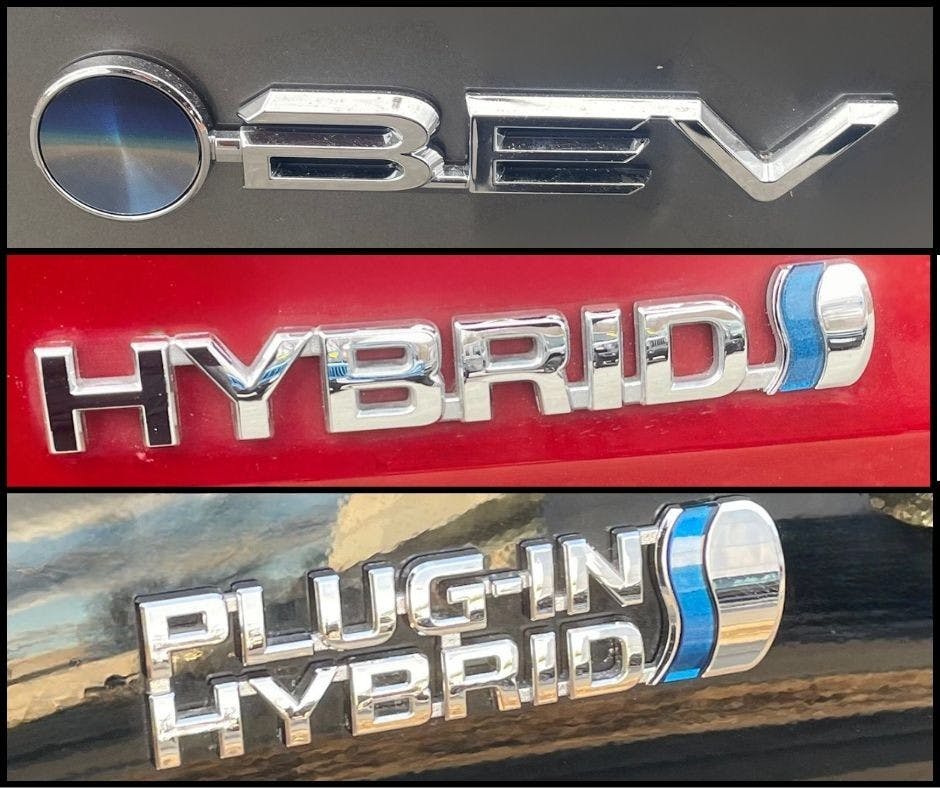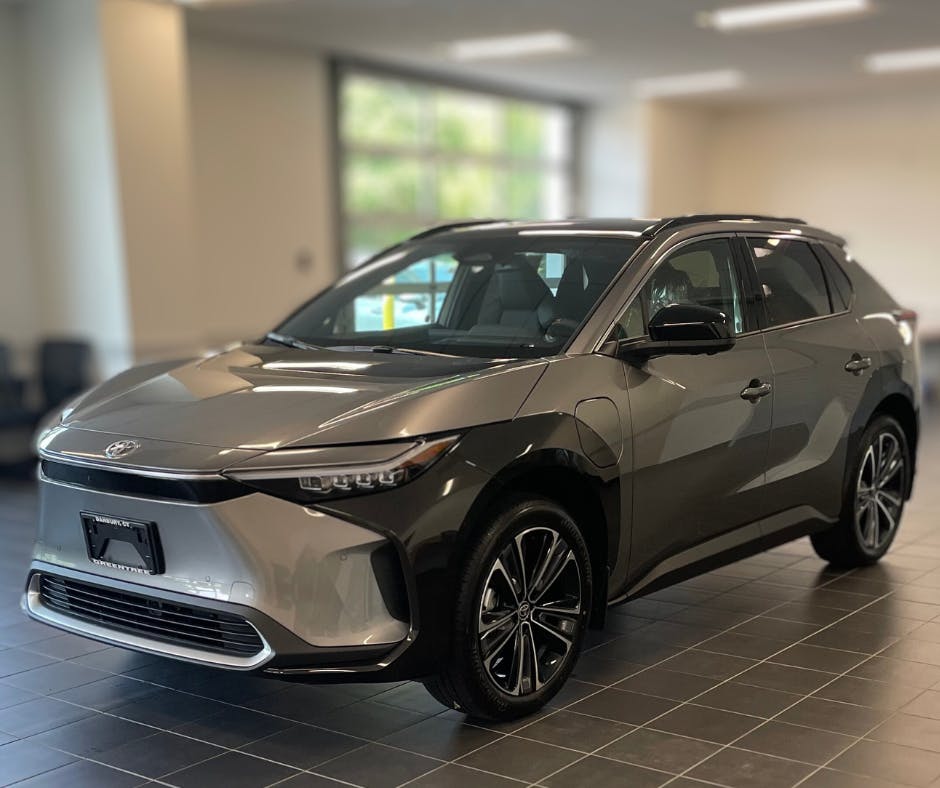
What is the Difference Between Hybrid and Electric Vehicles?
As the automotive world moves towards more sustainable solutions, the terms “hybrid” and
“electric vehicle” (EV) often come up. Although both offer a more fuel-efficient experience overall,
they are fairly different. We get asked to explain the difference pretty often, so our sales team has
come together to provide a clear answer!
At the most basic level, the difference is that an EV relies solely on electricity as its energy source,
while a hybrid uses both electricity and gasoline. Currently, Toyota offers four different types of
hybrid and electrical vehicles!
“electric vehicle” (EV) often come up. Although both offer a more fuel-efficient experience overall,
they are fairly different. We get asked to explain the difference pretty often, so our sales team has
come together to provide a clear answer!
At the most basic level, the difference is that an EV relies solely on electricity as its energy source,
while a hybrid uses both electricity and gasoline. Currently, Toyota offers four different types of
hybrid and electrical vehicles!
1. Hybrid Electric Vehicles (HEVs)
A Hybrid Electric Vehicle (HEV) blends both a traditional gasoline engine with one or more electric
motors. The electric motor assists the gasoline engine, during low-speed driving or acceleration, while the
gas engine takes over at higher speeds, or when the battery needs to recharge. HEVs cannot be plugged
in, so the engine recharges through the internal combustion engine and “regenerative breaking”. This
means that when the engine is running, it is generating energy to be stored in the battery, and when the car
breaks the electric motor catches and stores the generated energy that would have otherwise been lost.
If you’re looking to optimize fuel efficiency without needing to plug in, a hybrid is right for you!
Toyota’s hybrid lineup is extensive and includes popular models like the Prius, Corolla, and Camry as
well as SUV and truck models like the RAV4, Highlander, and Tacoma.
2. Plug-in Hybrid Electric Vehicles (PHEVs)
A Plug-in Hybrid Electric Vehicle (PHEV) is similar to a hybrid but with a larger battery and the ability
to charge from an external power source. This larger battery allows PHEVs to travel further on electric
power alone before the gasoline engine kicks in. Once the battery runs out, the vehicle functions like a
traditional hybrid.
Toyota currently offers two plug-in hybrids: the Prius Prime and the RAV4 Prime. A PHEV is perfect
for those who want the best of both worlds: electric driving when possible, and gasoline driving when
necessary.
3. Battery Electric Vehicles (BEVs)
Battery Electric Vehicles (BEVs) are pure electric vehicles, that are powered entirely by electricity stored
in large batteries. BEVs are charged exclusively by plugging them into charging stations. Because they
don’t rely on gasoline or any combustion engine, BEVs provide an entirely electric driving experience,
with environmental benefits, reduced maintenance needs, and the potential for lower operating costs.
If you’re ready to embrace a fully electric driving experience and have access to charging stations, then a
Toyota bz4x may be the right car for you!
4. Fuel Cell Electric Vehicles (FCEVs)
A Fuel Cell Electric Vehicle (FCEV) is another type of fully electric car, but rather than using batteries, it
uses hydrogen to generate electricity. In an FCEV, hydrogen is stored in tanks and sent to a fuel cell
stack, where it combines with oxygen to produce electricity, which powers the motor. The only emission
from a fuel cell is water vapor, making these vehicles incredibly clean.
Toyota offers one of the few FCEVs on the market, the Mirai. While currently only available in select
California markets, fuel cell vehicles offer a zero-emission driving experience, and the refueling process
is similar to that of a traditional gas vehicle, providing quicker "recharge" times compared to battery-
powered EVs. For now, FCEVs like the Mirai are best for those in areas with established hydrogen
refueling stations.
uses hydrogen to generate electricity. In an FCEV, hydrogen is stored in tanks and sent to a fuel cell
stack, where it combines with oxygen to produce electricity, which powers the motor. The only emission
from a fuel cell is water vapor, making these vehicles incredibly clean.
Toyota offers one of the few FCEVs on the market, the Mirai. While currently only available in select
California markets, fuel cell vehicles offer a zero-emission driving experience, and the refueling process
is similar to that of a traditional gas vehicle, providing quicker "recharge" times compared to battery-
powered EVs. For now, FCEVs like the Mirai are best for those in areas with established hydrogen
refueling stations.
In Summary:
● Hybrid Electric Vehicles (HEVs): Combine a gasoline engine with an electric motor, offering
greater fuel efficiency without the need to plug in.
● Plug-in Hybrid Electric Vehicles (PHEVs): Similar to HEVs, but with a larger battery that can
be charged externally, allowing for longer electric-only driving ranges.
● Battery Electric Vehicles (BEVs): Fully electric, powered exclusively by large batteries and
requiring charging stations for recharging. They provide a 100% electric driving experience.
● Fuel Cell Electric Vehicles (FCEVs): Also fully electric but powered by hydrogen fuel cells,
emitting only water vapor as a byproduct.
Our expert team is here to help you discover the right vehicle for you!
Visit Greentree Toyota at 87
Federal Road, Danbury, go online to greentreetoyota.com, or call 203-730-4040 to schedule an
appointment!

January 15, 2025

